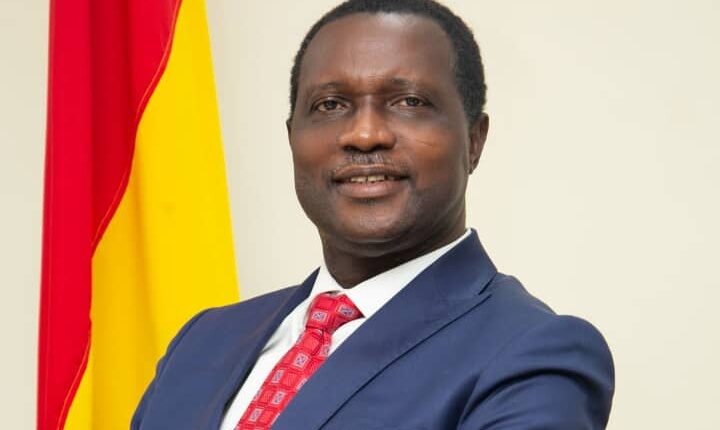Alumni protocol in our senior high schools: Time for rethink
When I entered Form One at Opoku Ware School some 45 years ago last month, we were only 192 in my year group, with the school’s total population hovering just a little over 1,000 or so.
Today, annual admission figures are around 1,300 for schools of the same size, with the school population around 4,000.
As the national population has increased over the years and with it the number of qualifying students seeking admission to our schools, along with the allure of the Free Senior High School (SHS) programme, demand has far outstripped supply at many of our senior high schools.
At the same time, the number of top-tier, desirable schools that many children understandably want to attend and qualify for has not changed much. This has brought the concept of ‘protocol admissions’ into some focus in recent years.
Traditionally, the relevant religious bodies (where applicable), the alumni bodies and the traditional authorities on whose lands our prestigious SHSs are sited have been entitled to what has been known as ‘protocol’ slots admission each year, given their important role in these schools as stakeholders.
Officially, the Ghana Education Service (GES), recognisant of the huge role various stakeholders play in the development of our SHSs, reserves five per cent of Form One spaces declared by the various schools ahead of the placement process for protocol purposes for those schools.
These slots are to be shared by the school across its stakeholder community at its own discretion.
What this means, for instance, is that if a school declares 1000 spaces, the school gets 50 protocol slots in total to distribute at its discretion.
The head is able to access the placement portal where his or her protocol slots have been pre-programmed and is then able to enter the details of the students he has selected, upon which they are duly placed.
Once the pre-programmed limit is reached, further access to the placement portal is denied. Beyond the alumni, the founding religious body (where relevant) and the traditional authorities on whose land the school sits, the school must also take into account children of the school staff, board members, relevant MMDA, sporting talent and others.
During the admissions season, it is particularly rare to catch a school head in his or her office or even to reach them by phone due to the sheer pressure on them.
Alumni support
Perhaps, almost uniquely in Ghana, there appears to be a much stronger affinity towards one’s former secondary school compared to the basic or tertiary institution one attended.
The healthy but intense rivalry between alumni of our schools, intensified in recent times by the National Science and Maths Quiz (NSMQ), perhaps tells us that this deep love, often publicly manifesting itself in car stickers or pendants among others is unlikely to go away anytime soon.
Year in year out, alumni come together to provide physical infrastructure for their schools and also support teaching and learning.
In most, if not all, top schools, annual speech and prize-giving days are usually organised and led by year groups, marking particular landmark anniversaries of leaving the school, often delivering a sizeable project to the school as an anniversary gift.
We are at our philanthropic best when it comes to our alma mater SHS and I dare say that but for alumni, most of our Category A schools would crumble.
Every year, frustrated alumni whose children have performed relatively decently but are unable to gain a place during the automatic placement round abound. Eventually, they resort to the prospect of protocol admission for their children to their beloved former school.
Special case for alumni
I believe it is important for the government to recognise the special role that our alumni play in the development of our schools and to do something about the woefully inadequate slots for them.
Of course, many alumni do what they do for their schools not because of anticipated protocol admissions but out of love.
After all, for single-sex schools, many may not have children of that particular gender or may live abroad with their children or they may not have any children at all.
I believe, however, that an expanded protocol system for alumni in particular would be a significant recognition of the major role they play in the development of our schools. In this, I do not suggest a freefall situation of mass alumni protocol, such as, to tip merit over the edge but a more realistic opportunity.
I do not believe that the heavens will fall through with a little expansion of slots for those whose sacrifices, efforts and investments make the school attractive enough for highly meritorious applicants in the first place.
Au contraire, such an expansion will ultimately encourage alumni to continue giving back to their schools and the schools will be the winners in this, giving the government some respite.
Perhaps, it is instructive to note that in US Ivy League universities, for instance, legacy admissions (a preference given by an institution or organisation to certain applicants on the basis of their familial relationship to alumni of that institution) is alive and well.
Our alumni deserve better. And our poor school heads who often go to their alumni for support for their schools, definitely need some space to soak up the alumni pressure when the time comes, lest they disappear into bunkers.
Rodney Nkrumah-Boateng,
Head, Communications & Public Affairs Unit,
Ministry of Energy.
E-mail: rodboat@yahoo.com



